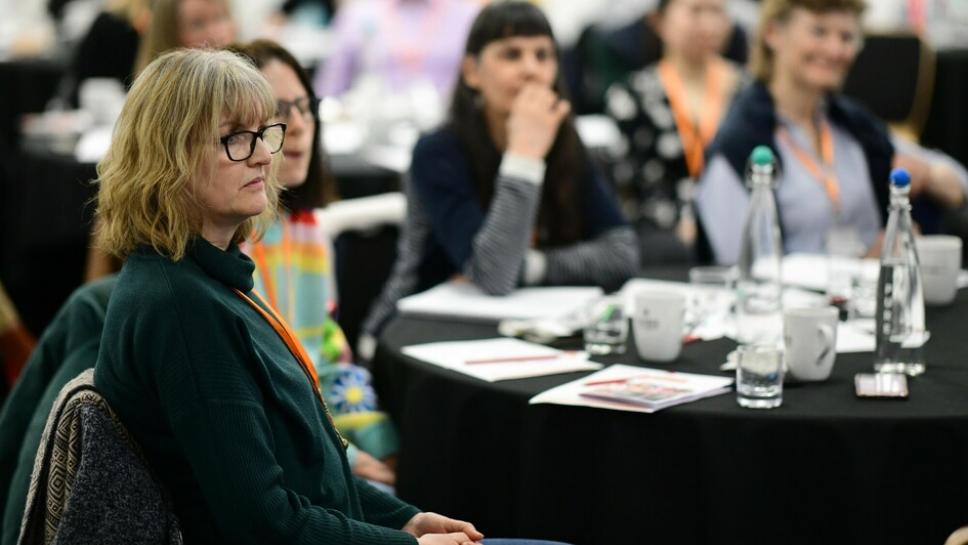In February, we revealed that there are now 110,000 people living with muscle-wasting conditions in the UK, compared to the earlier figure of 70,000. Now, MDUK is looking onward at how this new data will contribute to its campaigning efforts.
Prevalence of muscle-wasting conditions needs to be reflected in the number of healthcare staff

What was the Epidemiology Study?
In their MDUK funded project, Dr Iain Carey, and his team of researchers at St George’s University of London, addressed the lack of up-to-date information on how many people live with neuromuscular conditions in the UK. This research project addressed the gap in information and further helped to identify whether there are any areas or socioeconomic groups that have a greater need for support and specialised healthcare services.
How is information like this helpful?
Information on prevalence is vital for the work of different stakeholders. For example,
- Healthcare providers can use these figures to support their business cases when asking for additional resources and staff to better provide for people living with a muscle-wasting condition.
- Integrated Care Systems can better assess their healthcare priorities by understanding how many people with a muscle-wasting condition live in their area to ensure sufficient budget and support is allocated to neuromuscular services.
- Regulatory authorities and pharmaceutical companies can use this information to more accurately assess how many people might benefit from emerging treatments.
Additionally, these research findings also ensure that we can better advocate for the 110,000 people living with muscle-wasting conditions in the UK.
How do these findings feed into the work of MDUK’s policy team?
The NHS is currently facing a range of difficulties impacting the entire population. From insufficient staffing, long waiting times, and a worsening of health inequalities, it can be difficult to advocate for improvements for a rare disease population given the low number of patients such investment would benefit. This is where the prevalence study offers us the opportunity to further drive forward our advocacy work.
The number ‘110,000’ shows that neuromuscular conditions combined aren’t as rare as previously thought. In context, there are 135,000 people living with multiple sclerosis and 165,000 living with Parkinsons; diseases most people have heard about and aren’t considered as rare. As such, we can use these arguments to push forward our recommendations to improve access to the care and support people with a condition need.
One great example is we are calling for greater awareness of muscle-wasting condition in medical education. As muscle-wasting conditions are rare, many generalised healthcare professionals do not have insight or experience treating someone who lives with one. But someone with a muscle-wasting condition will have intricate needs that might impact their care and support outside of the neuromuscular specialism and therefore it is important to raise awareness of these conditions throughout generalised healthcare staff. By informing them, people with muscle-wasting conditions will be able to have better healthcare support for any help that they need – not just the problems faced directly regarding muscle-wasting conditions.
We are currently working with the Medical School Council and the Council of Deans for Health to engage with medical schools across the country. This will ensure that medical students have a greater exposure to muscle-wasting conditions at the beginning of their career which could improve access to staff in the future. We believe raising awareness of neuromuscular conditions throughout the medical school journey will ensure community services better support individuals and will increase the likelihood of a medical student to specialise in this area.
For those who are already engaged in the neuromuscular specialism, we will continue to provide upskilling events and we are reviewing our current eLearning modules to provide staff with opportunities to continuously develop their knowledge and skillset. These ensure that healthcare professionals across the UK are well informed and better prepared to support people living with muscle-wasting conditions.
Each of these initiatives to support healthcare staff aim to make sure people with muscle-wasting conditions have better support available. Particularly with more people now living with a muscle-wasting condition, it is imperative this is reflected in the number of specialist and community staff available to them.
We are driven to continue our work to ensure that people with muscle-wasting conditions will have better access to healthcare in the UK. If you would like to get involved in this effort, please email us at campaigns@musculardystrophyuk.org.


